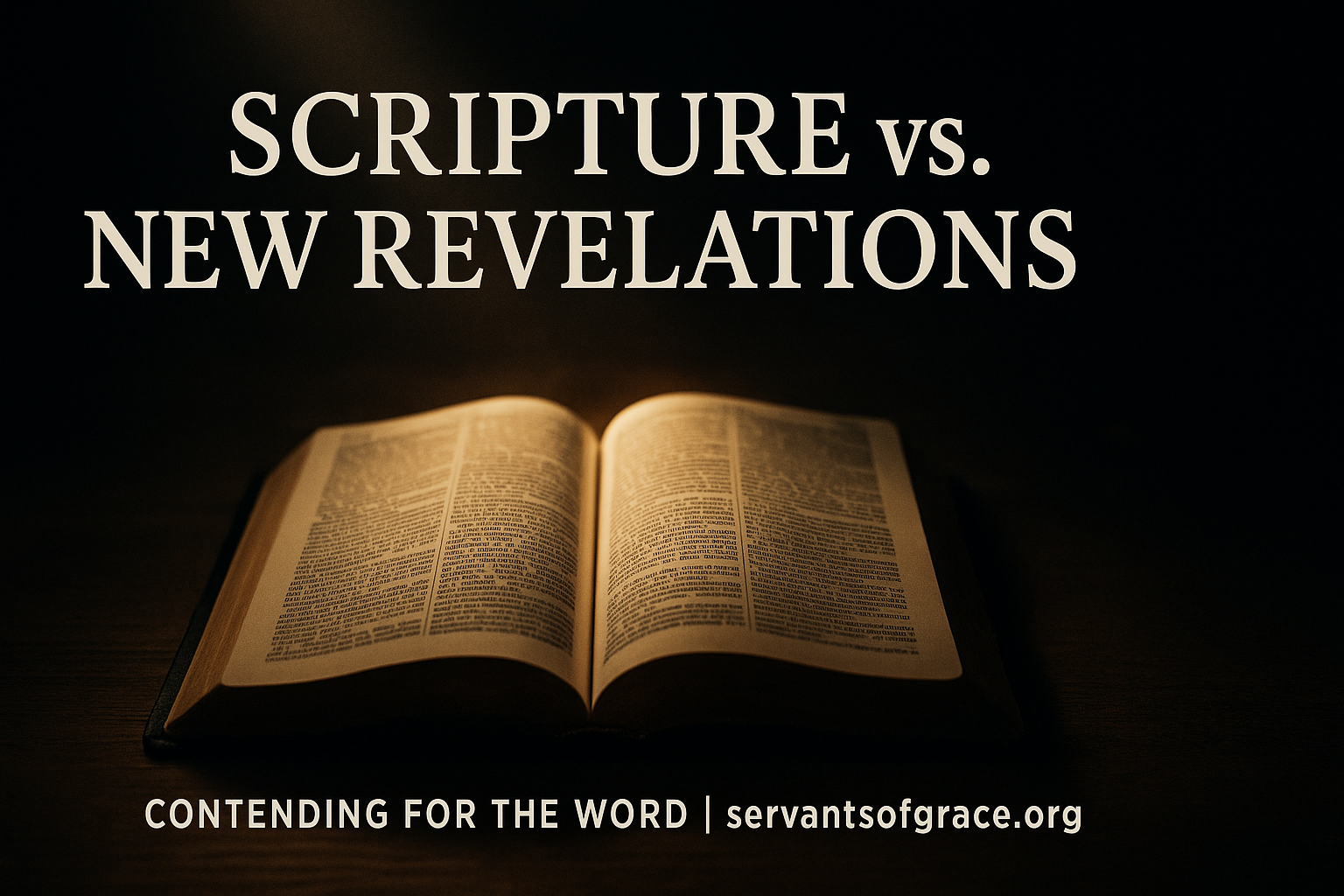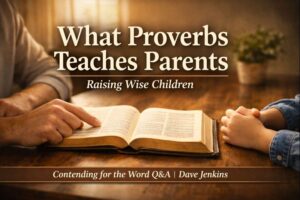⏱️ Estimated Reading Time: 3 min read
Scripture vs. New Revelations, Dreams, and Impressions
By Dave Jenkins
Question
Does God still give new revelations through dreams, visions, or impressions today?
Answer
God continues to guide His people today, but not through new revelation. The canon of Scripture is closed, and God now speaks to His people through His written Word, illuminated by the Holy Spirit.
To claim “God told me” apart from His Word risks undermining the sufficiency of the Bible and opens the door to confusion and deception.
1. The Finality of God’s Word
Hebrews 1:1–2 teaches that “God, having spoken long ago to the fathers by the prophets in many times and many ways, has in these last days spoken to us by His Son.” Through Christ and the apostolic witness preserved in Scripture, God has given His complete and sufficient revelation.
The Bible is not missing any information believers need for life and godliness (2 Peter 1:3). It contains all that is necessary to know God, to be saved, and to live in holiness.
To seek new revelation is to suggest that God’s written Word is incomplete, yet the Scriptures declare:
“All Scripture is breathed out by God and profitable for teaching, for reproof, for correction, and for training in righteousness, that the man of God may be complete, equipped for every good work.”
2. The Problem with “God Told Me”
Modern claims of divine dreams, impressions, or prophecies often arise from a sincere desire for intimacy with God, but they can easily blur the line between illumination and revelation.
- Illumination: the Holy Spirit helps believers understand and apply Scripture.
- Revelation: the Holy Spirit used the education, talents, abilities, and personality of the human authors as they wrote Scripture under His inspiration (2 Peter 1:20–21).
To confuse these is to give subjective feelings the weight of divine authority. The result is competing claims about a word from God that contradict Scripture and one another.
3. Testing Every Spirit
First John 4:1 commands, “Do not believe every spirit, but test the spirits to see whether they are from God.”
The test is objective, does it align with Scripture. If a dream, vision, or inner prompting violates or adds to God’s Word, it is false. God will never contradict Himself.
Believers must anchor discernment in the written Word, not impressions or impulses. Scripture is the measure of truth, not our experiences.
4. God Still Leads, Through His Word
While God no longer gives new revelation, He actively leads His people today through His providence and Spirit working in our hearts as we:
- Read and obey His Word (Psalm 119:105)
- Seek godly counsel (Proverbs 11:14)
- Pray for wisdom (James 1:5)
- Trust His sovereignty over our steps (Proverbs 16:9)
The Holy Spirit brings Scripture to mind, convicts us of sin, and strengthens faith, but He does not add to the inspired canon.
5. Standing on a Firm Foundation
The Reformers called this principle Sola Scriptura, Scripture alone is the final authority for faith and practice. All other claims, dreams, or impressions must bow before the Word of God.
Our faith does not rest on fluctuating emotions or mystical experiences, but on the unchanging revelation of God in Scripture. That is what anchors us in truth and guards us from deception.
Key Scriptures
Hebrews 1:1–2, 2 Timothy 3:16–17, 2 Peter 1:3, 1 John 4:1, Psalm 119:105



